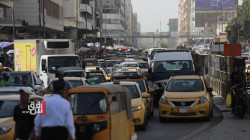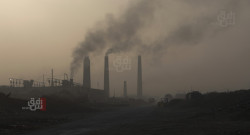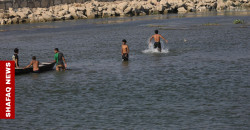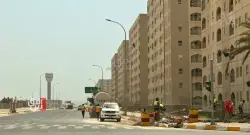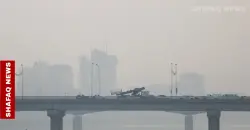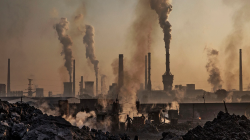The Dying Land: Iraq's Environmental Emergency
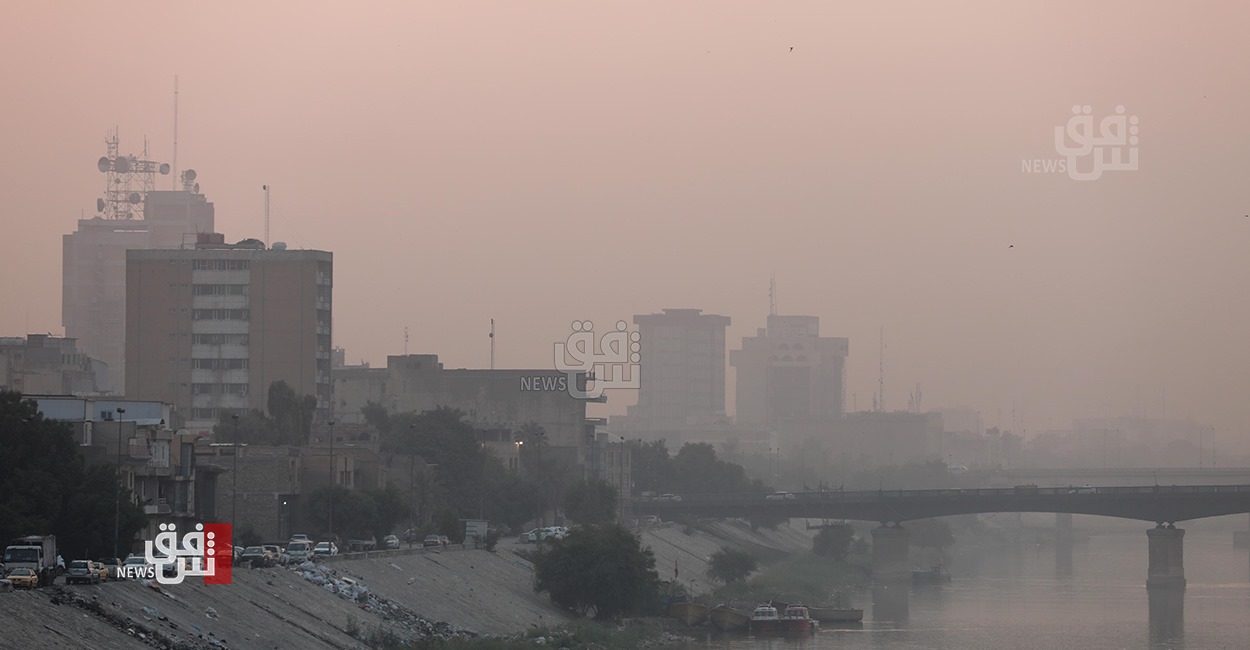
Shafaq News/ Iraq is at a critical environmental crossroads, grappling with escalating crises that threaten both its landscapes and its people. From Baghdad’s dwindling green spaces to the Kurdistan Region’s disappearing forests and the relentless spread of desertification, the environmental decline is accelerating. If left unchecked, this deterioration will have dire consequences for public health, agriculture, and the country’s long-term stability.
Baghdad’s Vanishing Green Spaces
The Iraqi capital illustrates the consequences of unchecked urbanization. Over the past two decades, Baghdad has lost more than half of its parks and green spaces, with a 2023 Ministry of Environment report revealing that over 50% of these areas have been erased due to unregulated development.
With the city's population surging from 5 million in 2003 to over 8 million today, air pollution has worsened. The Air Quality Index (AQI) in Baghdad frequently exceeds 200, well above the safe limit of 50, with sulfur dioxide and nitrogen oxide levels rivaling those in Cairo and New Delhi. Environmental expert Omar Abdul-Latif warns, “The deteriorating air quality and intensifying urban heat island effect are clear signs of an environmental crisis.”
Urban planning specialist Dr. Iqbal Latif stresses, “These areas play a critical role in cooling the city and improving public health. Without urgent action, Baghdad will face worsening pollution and extreme heat.”
A Growing Public Health Crisis
As environmental conditions decline, the toll on public health is rising. The Iraqi Ministry of Health reports a 32% increase in emergency room visits linked to air pollution in 2024 alone, with respiratory diseases such as asthma and bronchitis surging.
Compounding the crisis, Baghdad now regularly experiences record-high temperatures, often exceeding 45°C. The Iraqi Meteorological Organization notes that the city's temperatures have risen by 5°C over the past three decades, with densely built urban zones experiencing night-time temperatures up to 7°C higher than in rural areas.
Deforestation and Desertification
Beyond the cities, Iraq’s forests are vanishing at an alarming rate. The Ministry of Agriculture reports that 140,000 hectares of tree cover have been lost since 2000, with nearly half of that occurring in the past decade. By 2022, forests covered just 1.9% of Iraq’s total land area.
The Kurdistan Region has been particularly affected, with the Kurdistan Regional Government (KRG) reporting a 30% loss in forested land over the past 20 years. Illegal logging and land conversion continue to accelerate deforestation, despite legal protections. Environmental specialist Rania Fadil warns, “We are already witnessing increased soil degradation and more frequent flooding. If we don’t act soon, an environmental catastrophe is inevitable.”
This deforestation has also had a devastating impact on biodiversity. Iraq has lost 45% of its date palms over the past two decades due to environmental degradation and pest infestations. The loss of tree cover has further accelerated soil erosion and desertification. According to the UN Environment Programme, Iraq has lost 60% of its fertile land in the past 40 years.
Water scarcity compounds the crisis, with nearly 20% of Iraq’s farmland at risk of turning into desert due to dwindling water supplies. A 2024 World Bank report ranked Iraq as the 11th most vulnerable country to climate risks, citing its exposure to extreme weather and declining rainfall, which has dropped by 30% over the past five decades.
Government Initiatives: Too Little, Too Slow?
In response, the Iraqi government has launched several initiatives, including the “Baghdad Sustainable Forest” project, introduced by Prime Minister Mohammed Shia Al-Sudani in December 2024. The project aims to mitigate the heat island effect by planting 10 million trees by 2030. Additionally, the “Green Baghdad” initiative, launched in 2023, seeks to expand green spaces by 15% within five years, with plans for 108 new parks and over five million seedlings.
While these efforts signal progress, enforcement remains a major hurdle. Illegal construction continues to encroach on protected green areas, and weak coordination between ministries slows meaningful action. Policy analyst Dr. Zainab Al-Jabouri cautions, “Without stronger coordination and enforcement, these initiatives will remain symbolic rather than transformative.”
